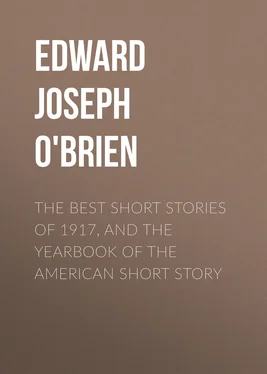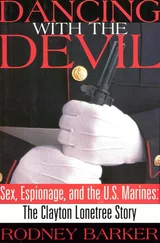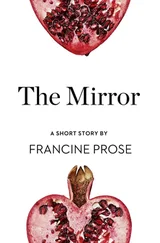Edward O'Brien - The Best Short Stories of 1917, and the Yearbook of the American Short Story
Здесь есть возможность читать онлайн «Edward O'Brien - The Best Short Stories of 1917, and the Yearbook of the American Short Story» — ознакомительный отрывок электронной книги совершенно бесплатно, а после прочтения отрывка купить полную версию. В некоторых случаях можно слушать аудио, скачать через торрент в формате fb2 и присутствует краткое содержание. Издательство: Иностранный паблик, Жанр: foreign_prose, literature_20, foreign_antique, на английском языке. Описание произведения, (предисловие) а так же отзывы посетителей доступны на портале библиотеки ЛибКат.
- Название:The Best Short Stories of 1917, and the Yearbook of the American Short Story
- Автор:
- Издательство:Иностранный паблик
- Жанр:
- Год:неизвестен
- ISBN:нет данных
- Рейтинг книги:3 / 5. Голосов: 1
-
Избранное:Добавить в избранное
- Отзывы:
-
Ваша оценка:
- 60
- 1
- 2
- 3
- 4
- 5
The Best Short Stories of 1917, and the Yearbook of the American Short Story: краткое содержание, описание и аннотация
Предлагаем к чтению аннотацию, описание, краткое содержание или предисловие (зависит от того, что написал сам автор книги «The Best Short Stories of 1917, and the Yearbook of the American Short Story»). Если вы не нашли необходимую информацию о книге — напишите в комментариях, мы постараемся отыскать её.
The Best Short Stories of 1917, and the Yearbook of the American Short Story — читать онлайн ознакомительный отрывок
Ниже представлен текст книги, разбитый по страницам. Система сохранения места последней прочитанной страницы, позволяет с удобством читать онлайн бесплатно книгу «The Best Short Stories of 1917, and the Yearbook of the American Short Story», без необходимости каждый раз заново искать на чём Вы остановились. Поставьте закладку, и сможете в любой момент перейти на страницу, на которой закончили чтение.
Интервал:
Закладка:
Mrs. Malcolm agreed. "Yes," she said. "Magnificent and insulting."
Sir John smiled. "My dear lady," he asked, "doesn't life consist largely of insults from the strong to the weak?"
"And were all these people so weak, then?"
"No, in their own way they were fairly important, I suppose, but compared to Morton they were weak—very weak—Ah, yes! I like this custom of smoking at table. Thanks!" He selected a cigarette deliberately, and stooped toward the proffered match. The flame illumined the swarthy curve of his beard and the heavy lines of his dark face. "You see," he began, straightening up in his chair, "the whole thing—that part of it, and the part I'm to tell—is really, if you choose, an allegory of strength, of strength and weakness. On the one side Morton—there's strength, sheer, undiluted power, the thing that runs the world; and on the other Bewsher, the ordinary man, with all his mixed-up ideas of right and wrong and the impossible, confused thing he calls a 'code'—Bewsher, and later on the girl. She too is part of the allegory. She represents—what shall I say? A composite portrait of the ordinary young woman? Religion, I suppose. Worldly religion. The religion of most of my good friends in England. A vague but none the less passionate belief in a heaven populated by ladies and gentlemen who dine out with a God who resembles royalty. And coupled with this religion the girl had, of course, as have most of her class, a very distinct sense of her own importance in the world; not that exactly—personally she was over-modest; a sense rather of her importance as a unit of an important family, and a deep-rooted conviction of the fundamental necessity of unimportant things: parties, and class-worship, and the whole jumbled-up order as it is. The usual young woman, that is, if you lay aside her unusual beauty. And, you see, people like Bewsher and the girl haven't much chance against a man like Morton, have they? Do you remember the girl, my dear?" he asked, turning to his wife.
"Yes," murmured Lady Masters.
"Well, then," continued Sir John, "you must imagine this Morton, an ugly little boy of twelve, going up on a scholarship to a great public school—a rather bitter little boy, without any particular prospects ahead of him except those his scholarship held out; and back of him a poor, stunted life, with a mother in it—a sad dehumanized creature, I gathered, who subsisted on the bounty of a niggardly brother. And this, you can understand, was the first thing that made Morton hate virtue devoid of strength. His mother, he told me, was the best woman he had ever known. The world had beaten her unmercifully. His earliest recollection was hearing her cry at night.... And there, at the school, he had his first glimpse of the great world that up to then he had only dimly suspected. Dramatic enough in itself, isn't it?—if you can visualize the little dark chap. A common enough drama, too, the Lord knows. We people on top are bequeathing misery to our posterity when we let the Mortons of the world hate the rich. And head and shoulders above the other boys of his age at the school was Bewsher; not that materially, of course, there weren't others more important; Bewsher's family was old and rich as such families go, but he was very much a younger son, and his people lived mostly in the country; yet even then there was something about him—a manner, an adeptness in sports, an unsought popularity, that picked him out; the beginnings of that Norman nose that Mr. Burnaby has mentioned. And here"—Sir John paused and puffed thoughtfully at his cigarette—"is the first high light.
"To begin with, of course, Morton hated Bewsher and all he represented, hated him in a way that only a boy of his nature can; and then, one day—I don't know exactly when it could have been, probably a year or two after he had gone up to school—he began to see quite clearly what this hate meant; began to see that for such as he to hate the Bewshers of the world was the sheerest folly—a luxury far beyond his means. Quaint, wasn't it? In a boy of his age! You can imagine him working it out at night, in his narrow dormitory bed, when the other boys were asleep. You see, he realized, dimly at first, clearly at last, that through Bewsher and his kind lay the hope of Morton and his kind. Nice little boys think the same thing, only they are trained not to admit it. That was the first big moment of Morton's life, and with the determination characteristic of him he set out to accomplish what he had decided. In England we make our future through our friends, in this country you make it through your enemies. But it wasn't easy for Morton; such tasks never are. He had a good many insults to swallow. In the end, however, from being tolerated he came to be indispensable, and from being indispensable eventually to be liked. He had planned his campaign with care. Carefulness, recklessly carried out, has been, I think, the guiding rule of his life. He had modelled himself on Bewsher; he walked like Bewsher; tried to think like Bewsher—that is, in the less important things of life—and, with the divination that marks his type of man, the little money he had, the little money that as a schoolboy he could borrow, he had spent with precision on clothes and other things that brought him personal distinction; in what people call necessities he starved himself. By the time he was ready to leave school you could hardly have told him from the man he had set out to follow: he was equally well-mannered; equally at his ease; if anything, more conscious of prerogative than Bewsher. He had come to spend most of his holidays at Bewsher's great old house in Gloucestershire. That, too, was an illumination. It showed him what money was made for—the sunny quiet of the place, the wheels of a spacious living that ran so smoothly, the long gardens, the inevitableness of it all. Some day, he told himself, he would have just such a house. He has. It is his mistress. The world has not allowed him much of the poetry that, as you must already see, the man has in him; he takes it out on his place.
"It was in Morton's last year at Oxford, just before his graduation, that the second great moment of his life occurred. He had done well at his college, not a poor college either; and all the while, you must remember, he was borrowing money and running up bills. But this didn't bother him. He was perfectly assured in his own mind concerning his future. He had counted costs. In that May, Bewsher, who from school had gone to Sandhurst, came up on a visit with two or three other fledgling officers, and they had a dinner in Morton's rooms. It turned into rather a 'rag,' as those things do, and it was there, across a flower-strewn, wine-stained table, that Morton had his second revelation. He wasn't drunk—he never got drunk; the others were. The thing came in upon him slowly, warmingly, like the breeze that stirred the curtains. He felt himself, as never before, a man. You can see him sitting back in his chair, in the smoke and the noise and the foolish singing, cool, his eyes a little closed. He knew now that he had passed the level of these men; yes, even the shining mark Bewsher had set. He had gone on, while they had stood still. To him, he suddenly realized, and to such as he, belonged the heritage of the years, not to these men who thought they held it. These old gray buildings stretching away into the May dusk, the history of a thousand years, were his. These sprawled young aristocrats before him—they, whether they eventually came to know it or not, they, and Bewsher with them—would one day do his bidding: come when he beckoned, go when he sent. It was a big thought, wasn't it, for a man of twenty-two?" Sir John paused and puffed at his cigarette.
"That was the second high light," he continued, "and the third did not come until fifteen years later. Bewsher went into the Indian army—his family had ideas of service—and Morton into a banking-house in London. And there, as deliberately as he had taken them up, he laid aside for the time being all the social perquisites which he had with so much pains acquired. Do you know—he told me that for fifteen years not once had he dined out, except when he thought his ambitions would be furthered by so doing, and then, as one turns on a tap, he turned on the charm he now knew himself to possess. It is not astonishing, is it, when you come to think of it, that eventually he became rich and famous? Most people are unwilling to sacrifice their youth to their future. He wasn't. But it wasn't a happy time. He hated it. He paid off his debts, however, and at the end of the fifteen years found himself a big man in a small way, with every prospect of becoming a big man in a big way. Then, of course—such men do—he began to look about him. He wanted wider horizons, he wanted luxury, he wanted a wife; and he wanted them as a starved man wants food. He experienced comparatively little difficulty in getting started. Some of his school and university friends remembered him, and there was a whisper about that he was a man that bore watching. But afterward he stuck. The inner citadel of London is by no means as assailable as the outer fortifications lead one to suppose.
Читать дальшеИнтервал:
Закладка:
Похожие книги на «The Best Short Stories of 1917, and the Yearbook of the American Short Story»
Представляем Вашему вниманию похожие книги на «The Best Short Stories of 1917, and the Yearbook of the American Short Story» списком для выбора. Мы отобрали схожую по названию и смыслу литературу в надежде предоставить читателям больше вариантов отыскать новые, интересные, ещё непрочитанные произведения.
Обсуждение, отзывы о книге «The Best Short Stories of 1917, and the Yearbook of the American Short Story» и просто собственные мнения читателей. Оставьте ваши комментарии, напишите, что Вы думаете о произведении, его смысле или главных героях. Укажите что конкретно понравилось, а что нет, и почему Вы так считаете.












